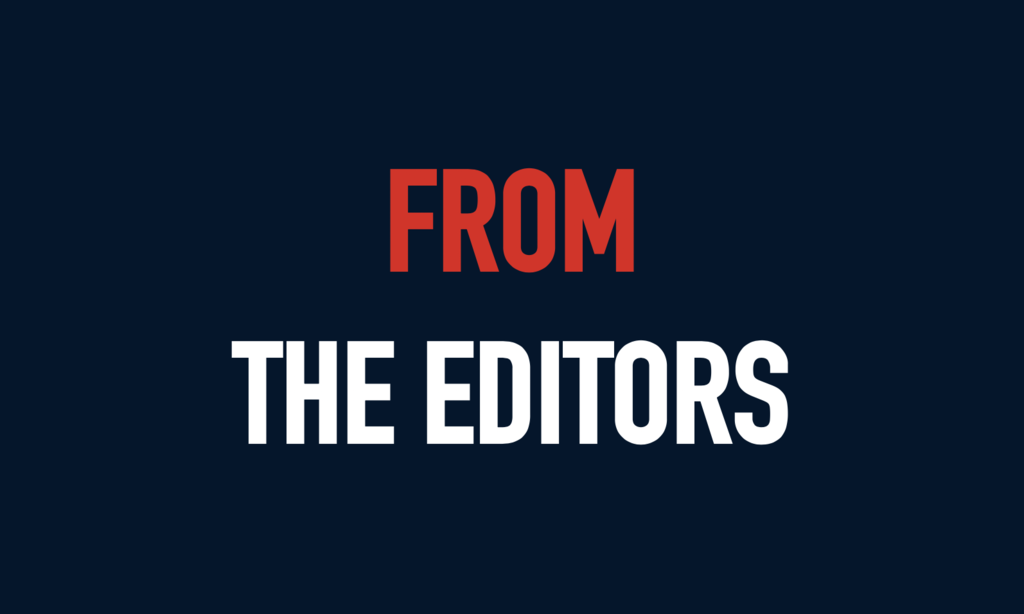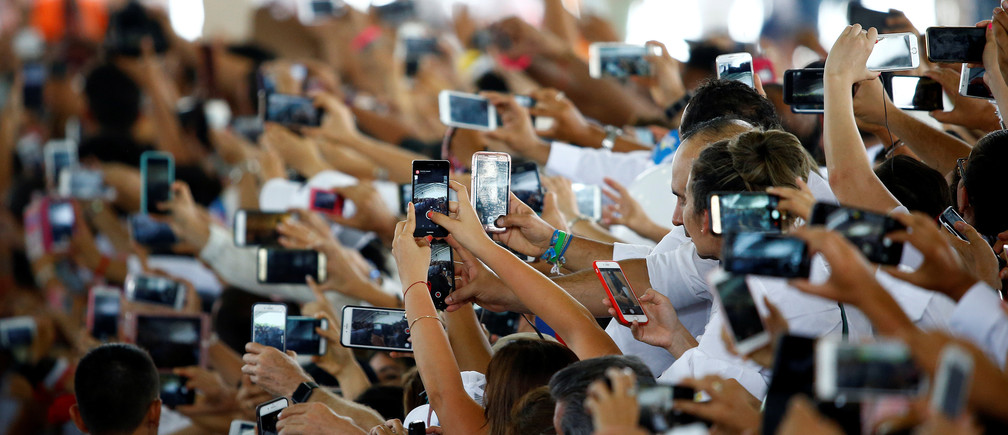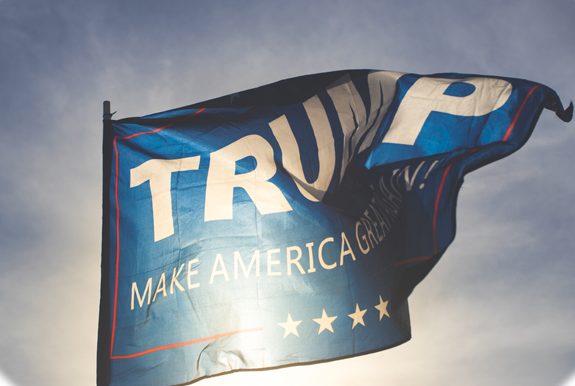Democracy and despotism in a digital age.
Why Won’t Biden go on Rogan?

The American people should demand an answer.
The American form of government requires that citizens choose representatives to govern them. To do so, voters must have some way of evaluating those who seek their vote. Without knowing them personally, one of the best ways to get to “know” a candidate is by watching them communicate over a period of time that lasts longer than a soundbite, in a format that forces them to say something other than well-practiced lines.
When’s the last time you listened to Joe Biden speak off the cuff? As in when did you last really, for an uninterrupted stretch of more than 60 seconds, hear Joe form sentences that didn’t come from a can?
It almost never happens anymore. Even Biden’s loyal fans at CNN have remarked with some trepidation that he seems allergic to questions from the press. Just today he ended yet another conference, this time in Denver, without taking any. It has recently come to light that Biden may be using a teleprompter even for interviews. His stooge T.J. Ducklo simply refused to be pinned down on whether Biden uses a teleprompter on the occasions when he does field the odd softball.
It’s not hard to imagine the reason for all this. The point here is not to make a cheap shot at Joe’s accelerating senescence. It’s that anybody, of any age, should demonstrate an ability to string two thoughts together in real time before being seriously considered for the presidency.
Since back in March when he butchered the Declaration of Independence—a flub that would have been nuclear if the American press were anything close to honest or fair—Biden’s distracted public mutterings have only become more incoherent. The press is studiously committed to ignoring this, which is why it’s been so long since you saw Biden speak extempore, and why you’re never prompted to think that maybe a candidate for the nation’s highest office should be, you know…more in the public eye.
The rare moments in which Biden does make himself clear—as, for example, when he proclaimed that black people who don’t fall at his feet “ain’t black,” or when he tweeted about his intention to tighten gun control while his voters burn American cities to the ground and shoot cops point-blank—might be even worse for him than when he can only sputter. The upshot of it all is: the less we hear from Joe Biden, the better for Joe Biden.
This is why those invested in Biden’s success have done everything they can to make it look like not just a sad necessity but a moral imperative that Biden stay as hidden as possible. He has to hunker down in the basement because he takes coronavirus so seriously, you see. He oughtn’t stoop so low as to debate that nasty Donald Trump, says Nancy Pelosi. Democrats are now practiced experts in presenting their chicanery as pure righteousness, a tactic they are doubling down on as their maundering cipher of a candidate becomes ever more evidently unfit to be seen, let alone to govern.
Digital Debate
As of now the Biden team is committed to formal debates. This is all to the good, but there’s still plenty of time to fudge the format, weasel out of audience questions, and generally do everything possible to reduce the spontaneity of this, Trump’s biggest opportunity to pin Biden down and show him to the public as the gibbering buffoon he is.
One of the worst aspects of the televisual era America has just passed through is the way in which TV allowed elites to avoid having to show you who they really are. We don’t want to overly simplify this, but what’s needed to give a good speech is a good speechwriter and some practice in delivery, plus the right look on camera. (Some people have “it,” others don’t—but “it” has nothing to do with political talent and virtue). There is a reason they call the people who recite words to you on TV “talking heads”—that’s often all they are.
Voters in the early republic, on the other hand, could learn a lot from the words published by men like James Madison and Alexander Hamilton, both of whom wrote—a lot. Voters in the 1850s could tell a great deal about Abraham Lincoln and Stephen Douglas and where they stood on the issues when they listened to the two men argue with each other for hours at time. Televisual “debates” between candidates, however, quickly degenerated into trading rounds of increasingly short soundbites.
Extended discussion and deeper debate and argument simply doesn’t make for very good TV, and it never will. Yet, sadly, the effect of televisual imagery upon our imagination is so powerful that to this day, for many, the televisual image of figures like John F. Kennedy is more real than the reality of his actual known political life. Similarly, pundits act as if the current lightning rounds of televised “debate” are deeply instructive; in truth, they tell us very little about anything at all.
Elites on the American Right have often ignored these obvious truths. But it is no accident that, up until the present administration, it was an actor, not an intellectual, who achieved the greatest presidential triumph for the Right in the modern era. Now, though, we are in the digital era, whose stars succeed not by polishing themselves for TV but by finding ways of letting their true, unedited selves be known. So it is also not an accident that President Trump was a well-developed reality TV star, and a well-honed Twitter personality, before taking office.
Digital technology subsumes video and audio within itself. Digital has allowed for a resurgence of both “live” and long-form discussions and debates. Audiences can now access longer, less edited and “produced” video and audio streams, free from frequent advertising and the need to break up content into bite sized snippets. They are used to interacting directly with candidates via social media. Used well, digital enables a return back to older, better ways for the public to gain insight into political candidates.
The Trump-Rogan Experience
That’s why we were delighted when Trump and Biden were invited to a new kind of debate moderated by Joe Rogan—the MMA-podcaster-turned-voice-of-a-nation whose shows regularly offer four straight hours of blue-collar common sense. At first, the mainstream press pretended he doesn’t exist. But he quickly acquired one of the largest audiences of any single talk show personality in history (190 million downloads a month). Rogan, for the crime of being a regular guy who just kind of thinks Dems are going a little insane, has now been cast by the regular suspects as some kind of alt-Right terror.
But he’s nothing of the kind: he’s a dynamic, compelling radio personality whose genuine sway with a huge range of Americans is the real reason why our ruling classes fear him so terribly. Indeed, as Buck Sexton argued, it’s hard to think of any reason why an interview with Rogan wouldn’t be more informative for the American public, more revealing of each candidate’s character and intentions, than a dog-and-pony show run staidly by obsolescent cable news anchors.
True, Rogan is not without his point of view or his stated intentions for November: he has compared Biden (amusingly, and not inaccurately) to a flashlight with a dying battery. But he’s also a lifelong liberal and far from a Trump shill—if anything, it seems better to have his views out in the open than to hand things over to network suits who feign objectivity while hamstringing Trump at every opportunity.
All told, Rogan might actually be one of the people who can help us live with one another again going forward. He’s a serious contender to rob the press of their long-undeserved monopoly on public authority. All this, of course, could be devastating for the oligarchs who want us bitter, divided, and afraid.
Trump responded to the invitation exactly the right way: he leapt at it. He’s game. Is Biden? He hasn’t said anything yet, but everyone who can should press him to accept. From pundits to the public, this should be the constant refrain: what’s Biden afraid of?
The Rogan debate would be four unfiltered hours without a live audience. It would give us as raw a look as we are likely to get at who these two men are: what they propose to do with this country, and how capable they are of executing on that plan.
How could anyone deny that such an event would help reveal something true to the audience about both men, no matter how blinded many in the audience now are by ceaseless media posturing? In such a format, voters would be better able to judge each candidate’s mental acumen, personal stamina, and capacity to perceive and deliver what our hurting nation needs to find its way again.
Everybody, Right and Left, should be pressing Biden on this at every available opportunity. But it would be especially dumbfounding if Republican leaders did not start loudly asking the obvious: What stops Biden from talking to Rogan, one of the most listened-to men in America? If there are any reporters left who don’t just want to score partisan points, they should demand to know why Biden would not want to be seen in an unscripted, open forum with his opponent. Does he not really believe his own hype? Do his censorious claims to tower above Trump intellectually belie a deep awareness of his own inadequacy to the task at hand?
To put it bluntly: is he chicken?
We think we know the answer. But we want to hear it from Biden’s own mouth. The American public should demand that: they deserve it, and the republican form of government demands it.
The American Mind presents a range of perspectives. Views are writers’ own and do not necessarily represent those of The Claremont Institute.
The American Mind is a publication of the Claremont Institute, a non-profit 501(c)(3) organization, dedicated to restoring the principles of the American Founding to their rightful, preeminent authority in our national life. Interested in supporting our work? Gifts to the Claremont Institute are tax-deductible.
In 2010, Claremont Institute Senior Fellow Angelo Codevilla reintroduced the notion of "the ruling class" back into American popular discourse. In 2017, he described contemporary American politics as a "cold civil war." Now he applies the "logic of revolution" to our current political scene.
Claremont Institute Senior Fellow John Marini is one of the few experts on American Government who understood the rise of Trump from the beginning of the 2016 election cycle. Now he looks to the fundamental question that Trump's presidency raises: is the legitimacy of our political system based on the authority of the American people and the American nation-state, or the authority of experts and their technical knowledge in the service of "progress"?




